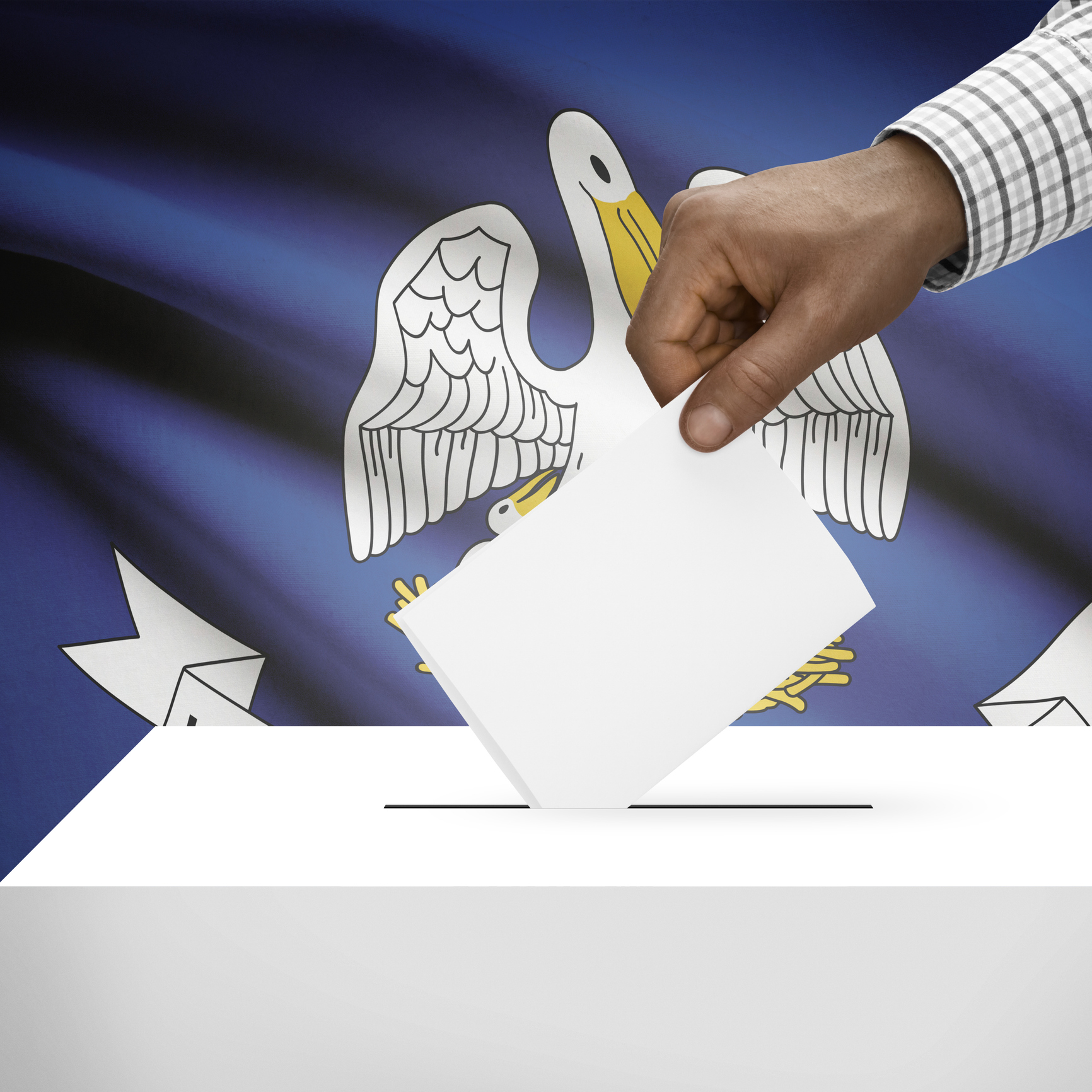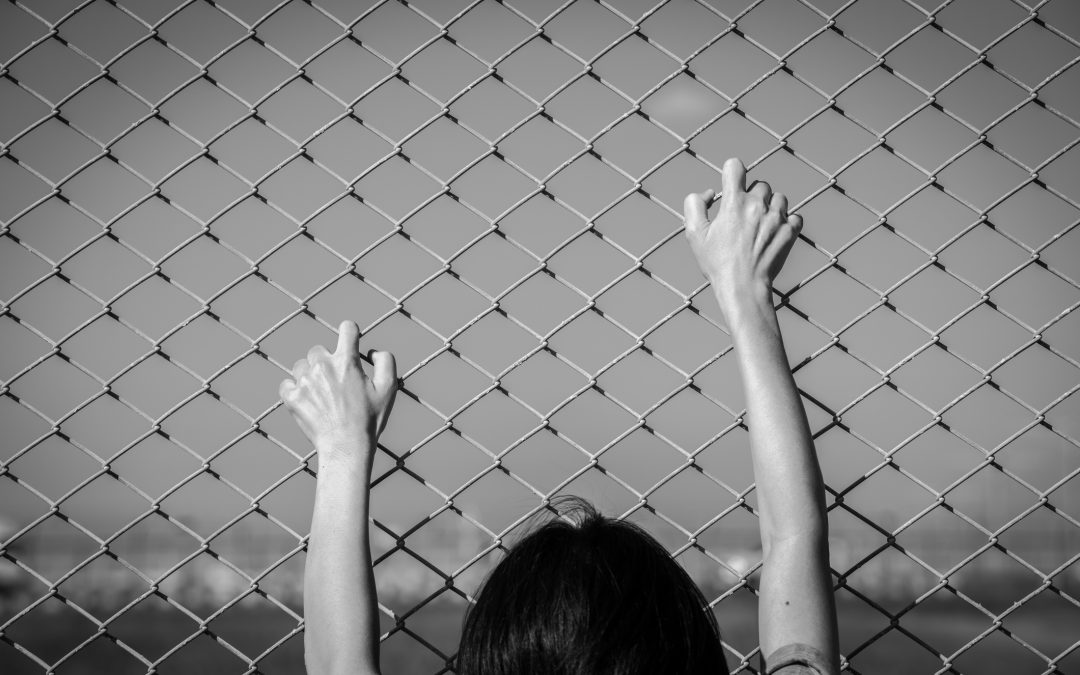Photo: A voter cast a ballot with the Louisiana flag in the background. Getty Images
By Mel Wilson, NASW Senior Policy Advisor
The Supreme Court (SCOTUS) on Oct. 15, 2025 will re-hear the case of Louisiana v. Callais . This case is possibly one of the most consequential rulings on voting rights since the 2013 SCOTUS decision Shelby County v. Holder. Since the Shelby County v. Holder opinion gutted the Voting Rights Act of 1965, there is a deep fear than an adverse SCOTUS decision after hearing the Louisiana case will be the death knell for the entire Act.
The case especially concerns Section 2 of the Voting Rights Act. Section 2 is important because it is the heart of the case as it relates to having voting protections with enforcement “teeth.” This section prohibits voting practices or procedures that discriminate on the basis of race, color, or an identified language minority group. It has long been used to challenge racial gerrymandering and vote dilution, especially when communities of color are packed into a single district or spread thinly across many to weaken their electoral power.
This is where the Louisiana v. Callais case comes in. After the 2020 Census, Louisiana drew a Congressional map with only one majority-Black district out of six. This was despite the fact Black residents make up about one-third of the state’s population. For that reason, the State of Louisiana was sued for submitting a gerrymandered 2022 congressional voting district map.
A federal court in 2024 ordered the state to redraw the election district map to include a second majority-Black district, citing Section 2 violations. In opposition to the lower court’s decision, a group of white voters – represented by the name Callais – sued, claiming the new map was unconstitutional because it was drawn with race as a predominant factor and violated the Equal Protection Clause of the 14th Amendment (euphemistically suggesting reverse discrimination).
The case is now In the hands of SCOTUS with a final ruling expected in June 2026. This means the decision will likely not impact the 2026 Congressional mid-terms or state elections. If the Court rules that race-conscious redistricting, even to remedy discrimination, is unconstitutional, it could effectively nullify Section 2. Along with the 2013 SCOTUS decision to disallow the use of Section 5 of VRA, such a ruling will eliminate one of the last remaining enforcement tools to combat racial discrimination in voting. This makes the direction of SCOTUS’ decision on Louisiana v. Callias extremely important.
The importance of the case is not limited to its impact on the 2026 mid-term election. If SCOTUS decides in favor of the group of white voters, the ruling could trigger a nationwide tsunami of gerrymandered redistricting, particularly in states covered by VRA . These states will be allowed to redraw maps in ways that dilute minority voting power, potentially flipping control of Congressional seats. The impact will reverberate for decades to come.
Just as important, an adverse decision by SCOTUS will probably signal a major rollback of civil rights protections for Black, Brown and other voters who for more than a century have been the victims of voting suppression and racial gerrymandering. Additionally, gutting Section 2 opens the door to the discredited, far-right position that the Constitution is “colorblind.” Those who adhere to the idea of “colorblindness” do not recognize historical and current racial voting discrimination as a justification for the government to provide a remedy for the harms that such discrimination caused. Therefore, there is no need for Section 2 protections and enforcement in VRA.
What appears to be certain is that by requiring re-hearing of oral arguments, the Court is wavering on the need for Section 2. This also suggests that the SCOTUS conservative majority leans toward the notion of Constitutional colorblindness. Voting rights, civil rights, and social justice organizations are nervous about the outcome. A negative outcome in this case will reverberate far beyond Louisiana and could determine whether voting rights are protected or continue to be eroded in generations to come.
For this reason, legacy voting and civil rights advocates, including the National Association of Social Workers (NASW) are mobilizing to influence the Supreme Court to preserve these essential protections against voting suppression and racial gerrymandering. A ruling that ends those protection would be another threat to democracy.
“This case is about more than lines on a congressional map. It’s about the opportunity for long-overdue equal representation for Black voters in Louisiana and about whether communities of color across the country can have meaningful representation”— Legal Defense Fund, October 12, 2025
For more information and analyses about Louisiana v. Callais subsequent to the October 15th SCOTUS oral arguments, please connect with the following resources:
American Civil Liberties Union (ACLU)– Louisiana v. Callais (Callais v. Landry) | American Civil Liberties Union
Arab American Institute – By Delaying a Decision in Louisiana v. Callais, the Supreme Court Has Put Voters’ Rights at Risk
Brennen Center for Justice – Louisiana v. Callais | Brennan Center for Justice –
Lawyers Committee for Civil Rights Under the Law – Lawyers’ Committee and Allies File Amicus Brief in Support of Fair Maps in Louisiana v. Callais | Lawyers’ Committee for Civil Rights Under Law
Legal Defense Fund (LDF) – Louisiana v. Callais
National Women’s Law Center – NWLC Joins Amicus Brief Filed in the U.S. Supreme Court in Support of Fair Maps in Louisiana v. Callais – National Women’s Law Center




